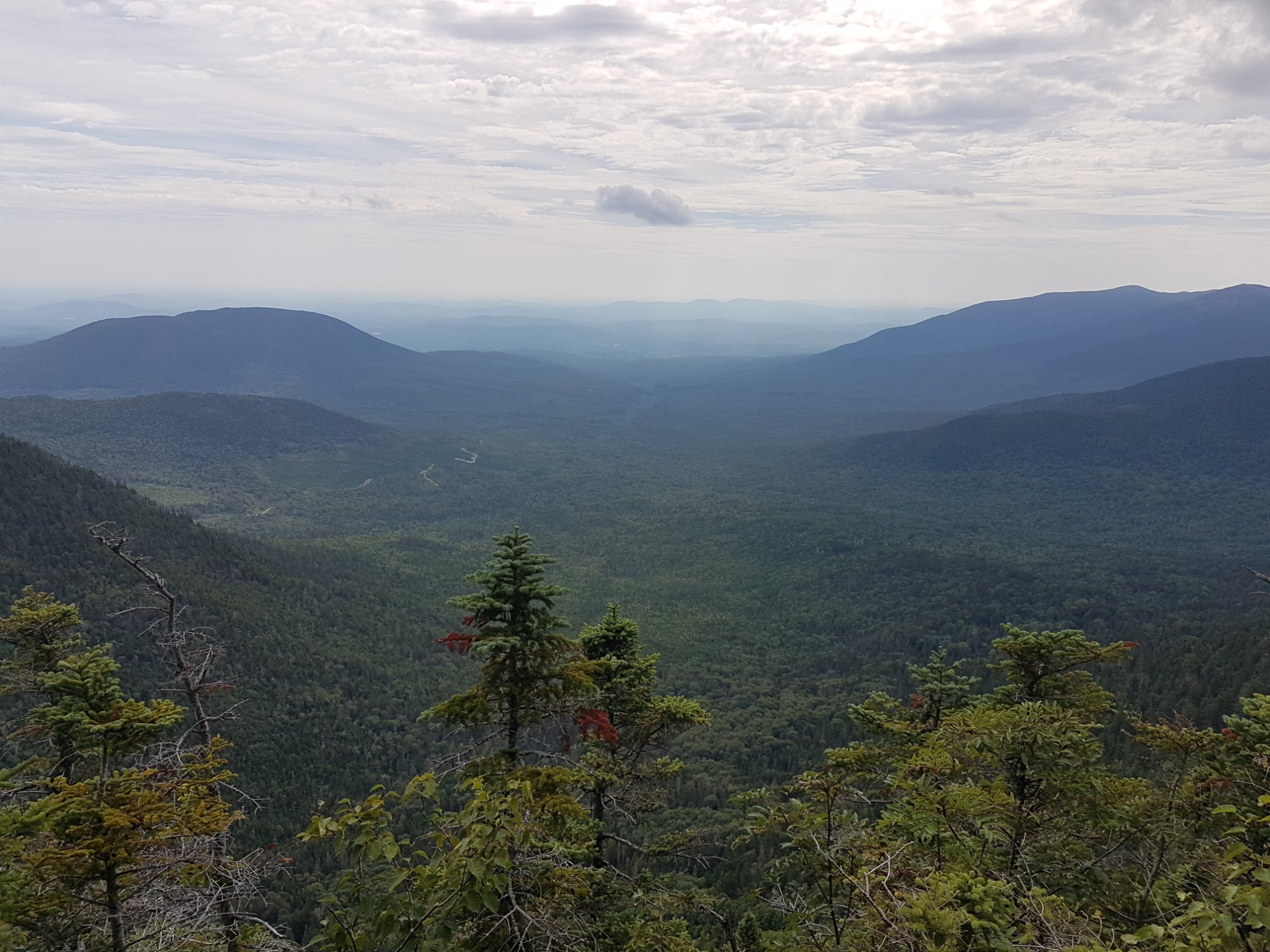
19 Sep Leadership Lessons from the Appalachian Trail
Last August, Judy (my wife) and I undertook a physical challenge unlike any we had previously embraced—and both of us have completed more than twenty marathons. We’ve also done several long-distance hikes, but nothing prepared us for a 50-mile section of the Appalachian Trail as it traverses a portion of the Longfellow Range in Maine. We summited 10 peaks in total, six of them over 4,000 feet, with a total of over 13,000 feet in elevation gain. Each day involved hour after hour of heart-pounding, quad-burning activity, all the while carrying a 40-pound pack and facing the ever-present awareness that one misstep could result in a sprained ankle or worse. But what great rewards we enjoyed! On almost every peak, we had 360° views from Quebec to New Brunswick to New Hampshire. We experienced the quietness of mind and soul that comes from extended periods of separation from technology, possessions and daily obligations. Everything we needed to survive we carried on our backs. We filtered our drinking water from babbling mountain streams and slept at night under skies so clear we felt we could touch the Milky Way.
Out of that experience, I think I can distill at least four leadership (and perhaps as well, life) lessons:
1. Let people find their own way.
Although the trail was always well marked on rocks or trees with 2×6 inch white blazes, the way to get from point A to point B was often less than clear and frequently involved clambering up or down over large boulders or throwing your body across gaps between rocks. Typically, I would lead the way, and Judy would ask, “How did you get up (or down)?” And I would say something like, “I put my right foot on that step, grabbed onto that tree root there with my left hand, and pulled myself up.” To which she would answer, “I can’t do that”—and would proceed to find her own way up. After the first day, I learned to stop giving advice but stay within reach if she asked for help when navigating a difficult stretch. One of the mantras of the hiking community is “Hike Your Own Hike”. In leadership and life, we need to give those who journey with us the space to “hike their own hike” — find their own way through the challenges they encounter—while we maintain a respectful distance.
2. Beauty will emerge out of chaos.
The forest can teach us many lessons. One of them is that beauty will often emerge out of chaos. Picture a delicate oak fern growing out of the end of a decaying log. Through a mindful attention to opportunities for organizational and personal renewal, and a conscious effort to embrace the new ways of thinking and doing that emerge out of difficult experiences, I have found that some of the most difficult, perplexing and confusing experiences of life and leadership have been the most conducive to growth.
I have found that some of the most difficult, perplexing and confusing experiences of life and leadership have been the most conducive to growth.
3. You can’t avoid mud.
The Appalachian Trail in Maine is often characterized as “rocks, roots and mud”. Boardwalks and log bridges have been constructed over most of the marshes but the trail still passes through long sections of ankle or calf-deep mud. For the first day or two on the trail, I would attempt to dance around the edges of a muddy stretch by looking for rocks, tree roots and clumps of plants to stand on, but by day three I realized that the most efficient way forward was to plow straight through. So it is in leadership when the need arises to address a difficult situation with a colleague. As a young leader, I would dance around the topic when confronting my subordinates to such an extent that my wife (who, since we were in a shared leadership situation, would sometimes sit in on these sessions) would say when it was over, “I don’t think he had any clue why you asked to meet with him”. After many years I’ve learned that the most constructive way (and perhaps least hurtful) to deal with a mess is to speak directly, state the facts, confront the situation and not the person, reaffirm your commitment to the individual and move on.
4. Growth comes through facing our fears.
The most challenging experience of the trek was the first night when we crossed Avery Peak on Mount Bigelow. For the hour or two before we summited, we met person or person coming down off the peak who warned us of the gale-force winds we would encounter on the bald, unprotected mountain top. Yet, turning back didn’t seem like a good option. It was already late in the day; we needed to reach a campsite before sunset and the closest one was two miles ahead. What we encountered at the peak was worse than we imagined. I’m a poor judge of wind speed but I guess that the winds were blowing at 75 or 80 mph. We made it across the exposed top of the mountain by sheer determination, on the edge of terror, step by careful step, Judy in front and me behind holding on to the straps of her backpack to keep her from being blown over. We crawled into our sleeping bags that night shaken but exhilarated, with the sense that we had grown personally through confronting the fear we felt so palpably on Avery Peak.
Others have written about how adversity makes us stronger people and better leaders and about the inspiration and growth that can emerge when we push past terror’s edge. The Avery Peak of my short history as leader of IJM Canada was my first year, when the organization ended the year with a disastrous revenue shortfall that could have abruptly ended my tenure and undermined our operating effectiveness for years. In the aftermath, I huddled my senior associates: we affirmed our confidence in one another, confirmed that the foundational principles of our organization were strong, made a few small but strategic adjustments to our programs, and pressed forward with cautious optimism regarding the coming year of operations. We went on to exceed our revenue target for the year by a record amount.


Mike Bayer
Posted at 08:01h, 31 JanuaryEd,
I am grateful for your wonderful message. Too few people understand that being a part of nature can allow you to have these transcendent experiences.
With boundless gratitude,
Mike Bayer